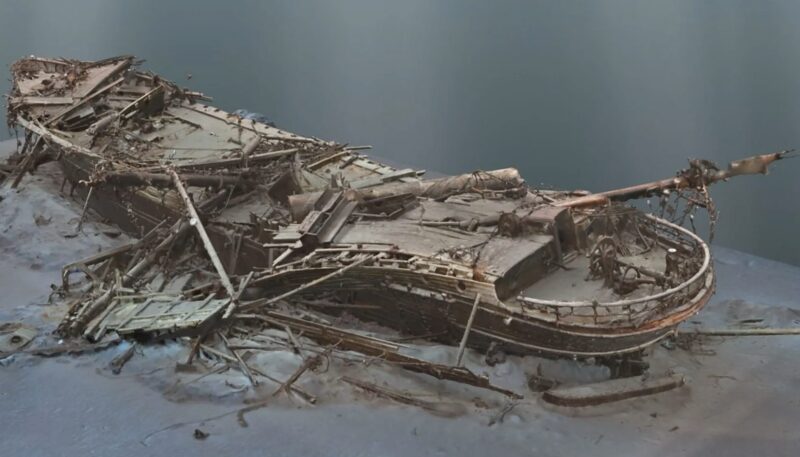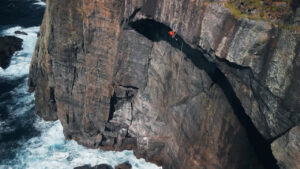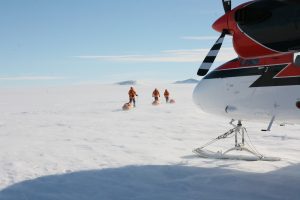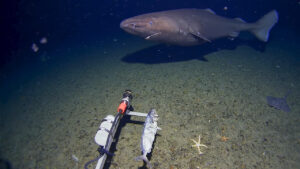In 2022, Ernest Shackleton’s ship, the Endurance, was discovered at the bottom of the Weddell Sea in Antarctica. Now 3D scans show the legendary shipwreck in extraordinary detail.
The Endurance was crushed in the ice and sank during Shackleton’s 1914 Imperial Trans-Antarctic Expedition. It has lain 3,000m down at the bottom of the ocean for 107 years. In 2022, the Falklands Maritime Heritage Trust spearheaded a search for the sunken ship. Sixty marine archaeologists, engineers, and scientists collaborated to find the mysterious shipwreck.
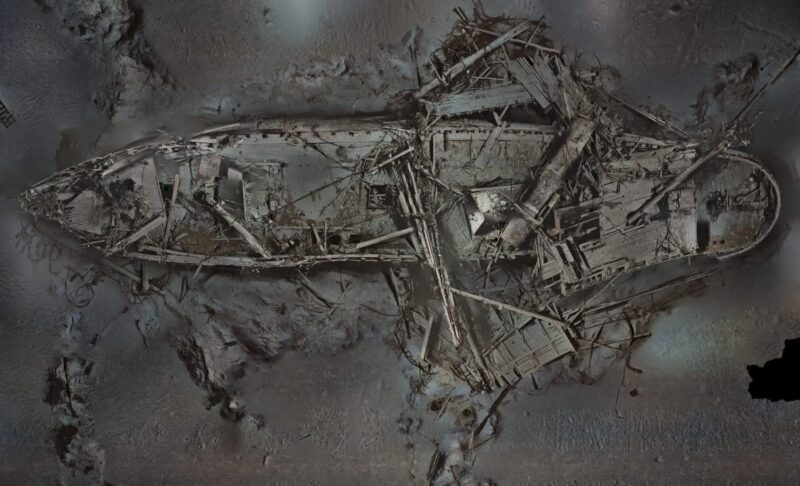
Photo: Falklands Maritime Heritage Trust
The team spent weeks filming the wreck and its debris field, even releasing incredible footage of the largely intact ship. Now, a 3D scan made up of 25,000 high-resolution images shows the Endurance in more detail than anyone thought possible.
A new National Geographic documentary, airing in the U.S. on November 1, explores Shackleton’s expedition and the search for the Endurance. The new footage doesn’t just capture the sunken hulk of the ship. It shows the dinner plates used by the crew scattered across the floor, a boot lying amid the collapsed rigging, and even the star pattern of the ship’s flooring.
Almost pristine condition
The shipwreck is classed as a monument under the International Antarctic Treaty, meaning that nothing can be retrieved from it or disturbed. Though some sections of the ship have decayed, the ice-cold waters of the Antarctic preserved most of it in near-perfect condition.
The story of how Shackleton and his crew survived the 1914 sinking without a single loss of life is one of the great tales of polar exploration. He and his crew wanted to complete the first crossing of Antarctica. Their attempt ended before it even began and quickly turned into a mission to survive.

Photo: Falklands Maritime Heritage Trust

Dishes from the Endurance. Photo: Falklands Maritime Heritage Trust
Trapped in the ice, the Endurance lived up to its name and endured the relentless forces of the pack ice for 10 months before it sank. The crew had to rely on their few lifeboats and limited supplies.
In April 1916, they reached uninhabited Elephant Island. There was no chance of anyone rescuing them there, so Shackleton and five crew members set out in one lifeboat across the stormiest seas on Earth. After 1,200km in the open craft, they reached South Georgia Island. Their ordeal was still not over. A whaling station lay on the other side, but to reach it, they had to make a hair-raising crossing of the mountainous, glaciated island. It took another four months to arrange a mission to rescue the remaining men on Elephant Island.
Miraculously, every single crew member was still alive. All 28 men had survived the expedition.
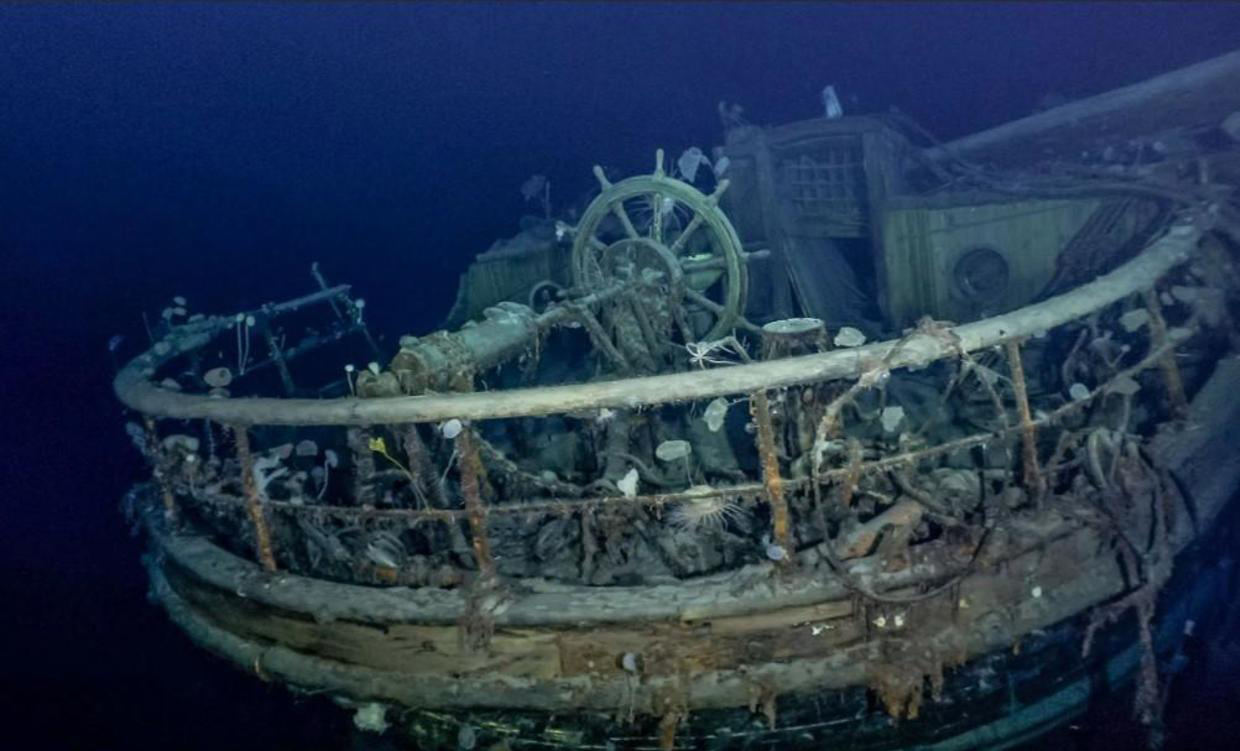
Photo: Falklands Maritime Heritage Trust
